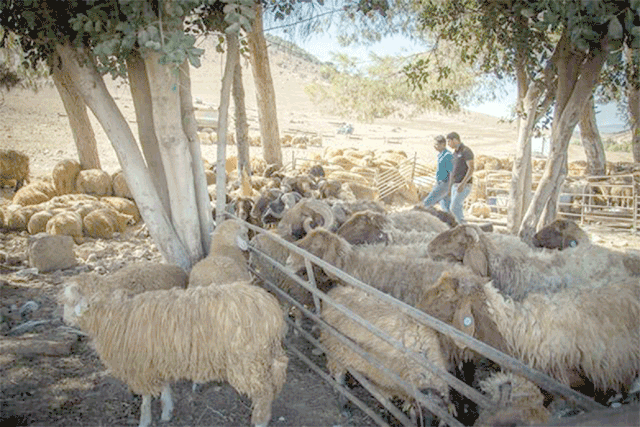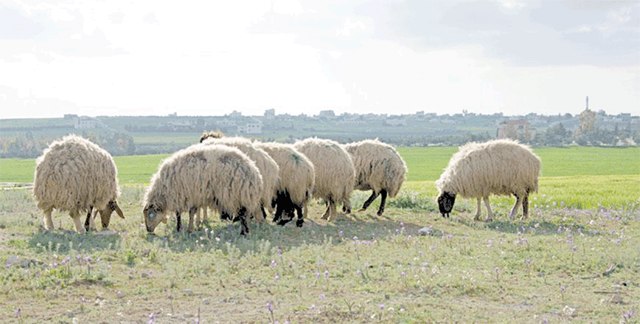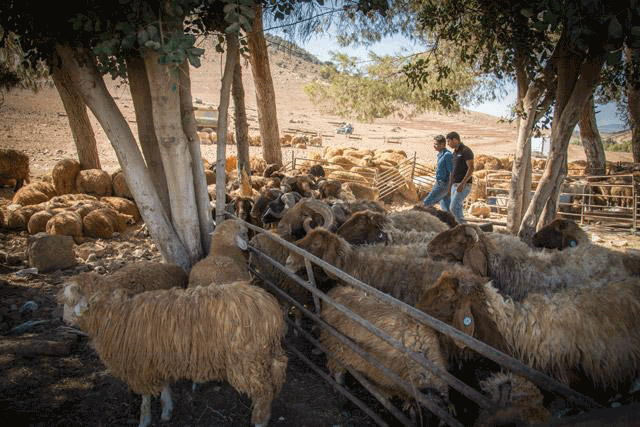You are here
Jordan exported 60,000 sheep to GCC countries in past 8 days — Livestock Breeders Association
By Mays Ibrahim Mustafa - Jun 23,2023 - Last updated at Jun 23,2023

According to the Livestock Breeders Association, Jordan exported around 600,000 sheep to the GCC countries in 2022 (File photo)
AMMAN — The Kingdom exported around 60,000 sheep to the Gulf Cooperation Council (GCC) countries over the past eight days, said Head of the Livestock Breeders Association Zaal Kawalit.
This came following Saudi Arabia’ decision to lift its temporary ban on Jordanian livestock imports on June 14.
The ban was primarily imposed due to safety concerns following the outbreak of foot-and-mouth disease (FMD) among cattle in the Dhuleil and Hallabat districts at the beginning of this year.
According to Kawalit, Jordan exported around 600,000 sheep to the GCC countries in 2022, roughly 70 per of which went to the Saudi Arabian market.
At the beginning of this year, Jordan exported 80,000 sheep, he noted, predicting that 50,000 more sheep will be imported by Eid Al Adha.
He told The Jordan Times that lifting the ban will have a positive impact on Jordanian sheep farmers, as there are currently around half a million local and imported sheep in the Kingdom, which significantly exceeds the needs of the local market.
Although prices are much lower than last year due to the increased supply, domestic demand remains low, likely due to the low purchasing power, he added.
In 2022, the price of local sheep ranged between JD5 to JD5.25 per kilogramme. However, it currently averages JD4.25, which is close to the price of imported sheep, equal to JD4 per kilogramme, he continued.
Kawalit estimates that the number of sheep that will be sacrificed during the three days of Eid Al Adha will be much lower than previous years.
He noted that around 250,000 sheep were slaughtered during Eid Al Adha in 2022, compared to roughly half a million in 2021.
Mohammad Al Hajaya, a sheep farmer, told The Jordan Times that lifting the ban will help him “mitigate” his losses.
During the ban, he had to sell his sheep at a price that was below usual by JD30 to JD40 per head.
Now that Saudi Arabia resumed importing Jordanian sheep, prices have increased a bit, Hajaya said, expressing hope that domestic demand for local sheep will improve since their cost is now close to that of imported sheep.
There are roughly 100,000 workers in the sector, the majority of whom are Jordanians, including livestock breeders, dairy producers, veterinarians and feed movers, according to Kawalit.
Related Articles
AMMAN — The Kingdom has exported around 450,000 sheep to Gulf Cooperation Council (GCC) countries since the beginning of the year, sai
AMMAN — The Agriculture Ministry’s decision to suspend live sheep imports before Eid Al Adha has triggered mixed reactions.Lawrence Majali,
AMMAN — The Kingdom’s sheep breeders and exporters fear major financial losses in light of Saudi Arabia’s ban on importing sheep from Jordan



















